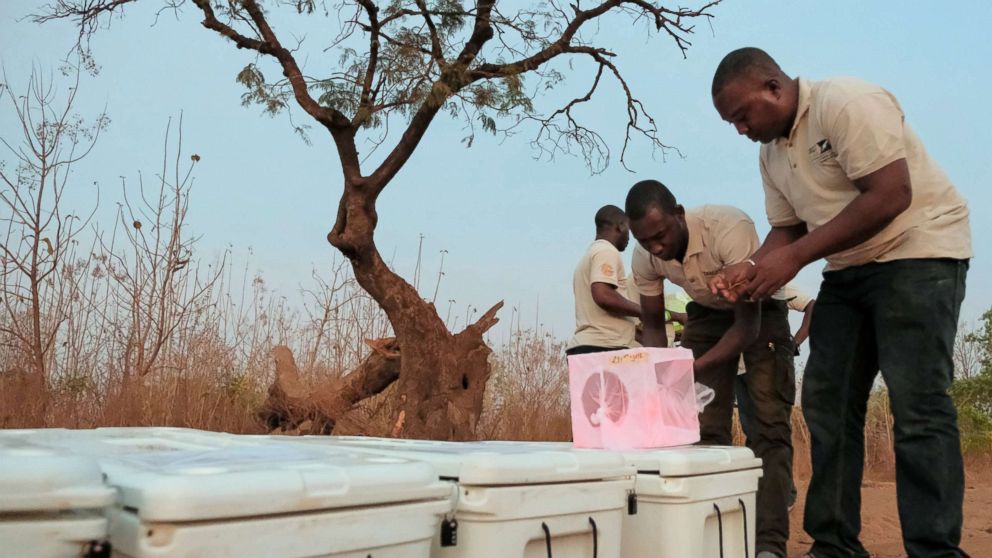This Is Why the U.S. is Flooding Only Florida with Millions of Genetically Modified Mosquitoes

In 2021, British biotechnology company Oxitec released 144,000 genetically modified mosquitoes in Florida. They expected about 12,000 male mosquitoes to hatch from eggs each week over 12 weeks. The project faced strong public opposition, with more than 238,000 people signing a petition against it. However, federal agencies allowed the experiment to continue.
The mosquitoes released were Aedes aegypti, a species that carries many dangerous diseases such as dengue fever, Zika virus and yellow fever. The project was carried out to control the spread of these diseases, especially when traditional methods such as chemical spraying have failed. Oxitec developed female mosquitoes with a self-limiting gene that makes them unable to reproduce, thereby reducing the number of female mosquitoes in the wild.
When the genetically modified male mosquitoes are released, they mate with wild females, resulting in a generation of mosquitoes carrying the gene that dies in the larval stage. While the project has the potential to stop disease, there are concerns about its safety and long-term impact on the environment. Outside scientists worry that releasing genetically modified mosquitoes could lead to the emergence of new hybrids that could be more dangerous.

**More details:**
In 2021, Oxitec, a British biotechnology company with US ownership, conducted an experiment releasing 144,000 genetically modified mosquitoes in Florida. Mosquito egg boxes were placed in six different locations, and each week, about 12,000 male mosquitoes were expected to hatch, over a 12-week period. By 2022, the number of released mosquitoes will reach 5 million, and 3 million by 2023. The process is simple: an Oxitec box is placed on a private property, water is added, and the mosquitoes hatch without any additional care.
The project has faced a lot of community opposition since it was announced in 2011. More than 100,000 people signed a Change.org petition opposing the project, and that number has grown to more than 238,000 as of today. People are concerned that releasing genetically modified mosquitoes could use them as “guinea pigs” without their consent. Despite the opposition, federal regulators have approved the project.
The Aedes aegypti mosquito, also known as the yellow fever mosquito, is a global threat as it inhabits nearly half the world’s population and spreads a number of diseases for which there is currently no effective treatment. Although measures such as chemical spraying have been applied, they are still not effective enough to prevent the spread of disease.
Oxitec has developed a genetically modified male mosquito in which only males survive due to a self-limiting gene, meaning that only males in the offspring survive to adulthood and mate. This leads to a decrease in the number of female mosquitoes, thereby reducing the risk of disease transmission.
During the study, the genetically modified male mosquitoes will mate with wild females, creating a new generation of mosquitoes. However, some scientists are concerned that releasing genetically modified mosquitoes could create new hybrids, leading to a worse situation. Some studies have also shown that the mosquito lethal gene is only present for a short time and may result in female mosquitoes surviving and developing.
Although there are many potential benefits to using genetically modified mosquitoes to control disease, the practice remains controversial regarding its safety and long-term environmental impact.
Many scientists have thought about eliminating mosquitoes, but they cannot predict the ecological consequences. Mosquitoes are an important food source for many animals, including bats, birds, frogs, and fish. Eliminating 100 species of mosquitoes could have short-term ecological impacts. Although no species survives entirely on mosquitoes, eliminating them would make it difficult for many species to find food.
Some scientists believe that eliminating mosquitoes would not have a negative impact on the environment, but this is difficult to predict with 100% certainty. There is concern that if mosquitoes disappear, other, more harmful blood-sucking insects could emerge. Research shows that major interventions in ecosystems, such as eliminating a species, often do not yield good results.
Genetic modification appears to be safer. For example, a project to release genetically modified mosquitoes in Brazil has been successful in reducing the number of mosquitoes that carry dengue fever. Since July 2023, more than 4,500 devices have been installed in Kangas City, resulting in no detection of disease-causing mosquitoes in many locations. The city has since seen a lower increase in dengue cases than neighboring cities.
In addition, a new strategy of using drones to release mosquitoes has been deployed in Fiji to control the spread of the disease. Scientists have also discovered that bacteria on human skin can repel mosquitoes, and they have developed a repellent that lasts up to 11 days. Even perfumes like Victoria’s Secret Bombshell can help repel mosquitoes.
Finally, a unique campaign in Sri Lanka used newspapers printed with ink containing citronella essential oil to prevent mosquitoes from attacking readers. The campaign attracted attention and generated high revenue for the newspaper.








